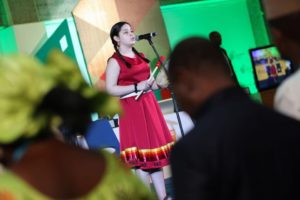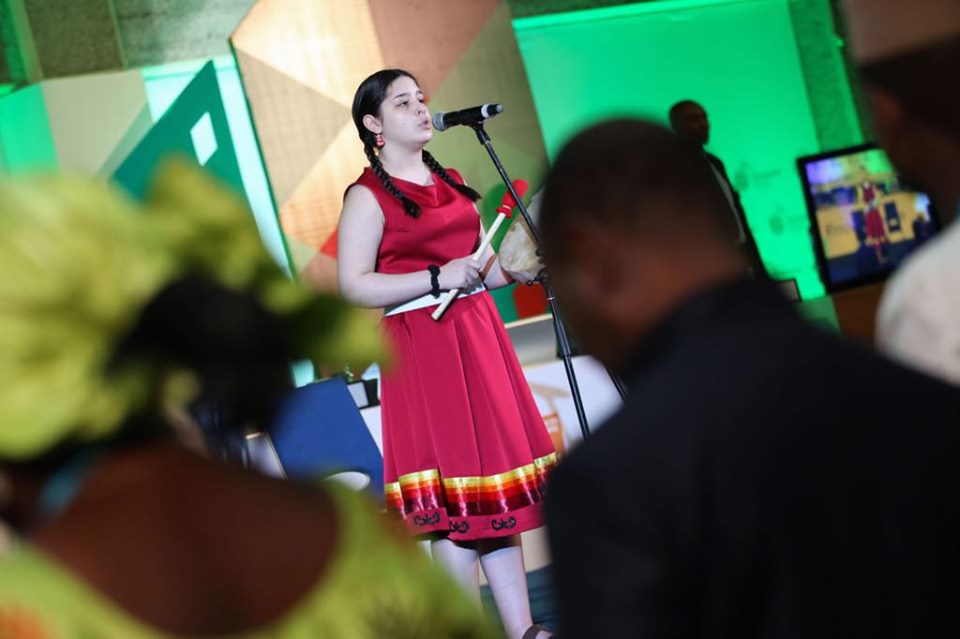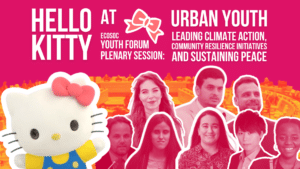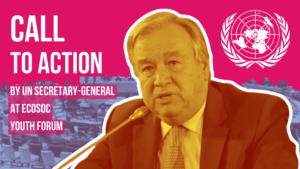
Kwe’! Ni’n teluisi Emma Stevens aqq tle’wi Essisoqnik, Mi’kma’ki, Kanata.
Hello everyone! My name is Emma Stevens, and I feel truly honored to have been invited here today, to speak and perform for you all at this incredible event, here in the beautiful country of Kenya. This is my first time being abroad and I don’t think that I could possibly feel more welcomed. I would like to sincerily thank the UN for this incredible honor. In my language, Mi’kmaq, we say the word wela’lioq to say thankyou to a group of people. So.. wela’lioq to everyone here today from the bottom of my heart.
My home is the community of Eskasoni First Nation on the island of Unama’ki in Nova Scotia, Canada. It’s hard to believe that I have been given this wonderful opportunity to represent the indigenous people of Canada here today. All 1.7 million of them.
Like many places in the world today, being an indigenous person in Canada is not without it’s challenges. Even in a modern democratic country like Canada, indigenous people are still fighting for equality, justice and reconciliation. As you may be aware, we have come a long way towards righting the wrongs of the past in Canada in recent years but, I’m here to say that, as an indigenous Canadian myself, that we still have a long way to go. In the short time that I have here today, I would like to speak to you about two important issues that affect all indigenous Canadians that are near and dear to my heart.
The first issue, is that which brought me here today – the rapid loss of my own native language, Mi’kmaq, among it’s native speakers. Like many indigenous languages around the world, Mi’kmaq is endangered. Today, there are less than 10,000 people left in the entire world who can speak Mi’kmaq and this number is rapidly in decline. It saddens me to say that it is believed that within 2 generations Mi’kmaq is predicted to be lost forever.
The reasons for this are complex. For one, for more than 100 years in Canada, many young indigenous people were sent to government and church-run residential schools, where they were not allowed to speak their native languages or practice their culture. The mandate of these schools was to strip us of our language and culture, and as a result generations of indigenous children grew up without their parents and therefore never learned to be parents themselves. This happened for over 100 years across Canada, from coast to coast to coast. Today, although residential schools have been gone for some time, the negative effects of more than 100 years of intergenerational trauma are still felt in every first nations community across Canada. I see it with my own eyes, in my own community, everyday of my life.
Unless we all come together, join hands, and work together to right these wrongs, it is very likely that by the time that I am 50 years old (34 short years from now), that I will have no one to speak to, in the language that my ancestors have viewed the world through for thousands of years. This is a incredibly scary thought for me, and for every Mi’kmaq person that I know. However, there are solutions to this problem and every single one of us, indigenous or not, can contribute to making a difference, whether that be lobbying governments to help protect indigenous languages and the rights of indigenous peoples, or simply taking the time to learn about indigenous languages and cultures and celebrating their diversity and beauty.
If you are an indigenous person yourself, and don’t know your language, I want you to know that this is not in any way your fault…but I want you to challenge yourself to begin to learn this important part of your identity before it’s too late. And, if you do speak an indigenous language.. please speak it. Speak it everyday and teach it to every young person in your life. Be like some of the amazing people in my home community who work tireslesly to inspire indigenous people who have lost their way to embrace their language and culture, and to foster awareness, understanding and friendship with non-indigenous people.
Myself, I have chosen to use my talents as a singer to help bring awareness to issues such as this. It is my hope that in some small way that I am playing a part in helping to bring back my language, and other endangered languages, through my music.
I’m very much looking forward to singing for you, in Mi’kmaq, here in a few moments.
I also would like to take a moment to tell you all about the dress that I am wearing today. This dress is a traditional Mi’kmaw women’s ribbon dress. The ribbons are the colors of fire, because of the passion I feel for my culture, language and heritage. The color red also represents a movement we have in Canada called the Red Dress movement, which seeks to bring attention to Missing and Murdered Indigenous Women. It saddens me to say that 4,000 indigenous women in my country have gone missing or were murdered since the 1970’s and many of these crimes have gone unsolved. I wear this traditional Mi’kmaw ribbon dress, in red, to honour these women and girls, and to pay tribute to their loved ones who have lost their daughters, sisters, and mothers.
Despite these obstacles and scary statistics, we have music and our language to carry us through the hard times. For indigenous people, singing in our native language brings us closer to Mother Earth, and gives us a connection with our ancestors who have suffered so greatly. We sing from our hearts because we want the world to know that we are still here and that our voices will be heard.
For the women who have been murdered or gone missing, and for their families who have yet to receive justice, I dedicate this song, the Mi’kmaq Honor Song.



